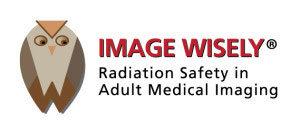Uterine Fibroid Embolization (UFE) is also known as Uterine Artery Embolization. Using real-time MRI imaging, Princeton Radiology’s interventional radiologists work with extreme precision to guide the catheter through the uterine artery to the exact locations of the fibroids and release tiny particles into the uterine arteries that supply blood to the fibroid tumors. Without blood flow, the tumors shrink and die.
Uterine fibroids are benign (non-cancerous) growths that develop in the muscle walls of the uterus, and sometimes cause pain or heavy bleeding. While 20 to 40 percent of women age 35 and older have uterine fibroids, only 10 to 20 percent of women with fibroids require treatment. A non-surgical treatment for uterine fibroids is uterine fibroid embolization (UFE), also known as uterine artery embolization. UFE kills the fibroid tumors by cutting off their blood supply.
How Uterine Fibroid Embolization works
Using real-time MRI imaging, Princeton Radiology’s interventional radiologists work with extreme precision to block the blood supply to the fibroid tumors. First, the radiologist will make a tiny incision in the upper thigh to insert a catheter, or thin tube. Then, the MRI images allow the doctor to guide the catheter through the artery to the exact locations of the fibroids and release tiny particles into the arteries that supply blood to the fibroid tumors. Without blood, the tumors shrink and die.
Results and effects
The majority of women who have the UFE procedure experience significant or total relief from heavy bleeding and pain and there is a very low rate of recurrence.
What will Uterine Fibroid Embolization treatment be like?
Since UFE is minimally invasive, there’s no need for general anesthesia. You will be sedated, but will remain awake during the procedure, and will not feel pain. You will usually stay in the hospital overnight. Some pain and cramping is normal, but medications can be provided to minimize discomfort. The majority of women return to normal activities within 7 to 10 days.
To schedule an appointment at Penn Medicine Princeton Medical Center for this procedure, please call 609.497.4040.
Uterine Fibroid Embolization Locations
This exam is available at the following locations:




